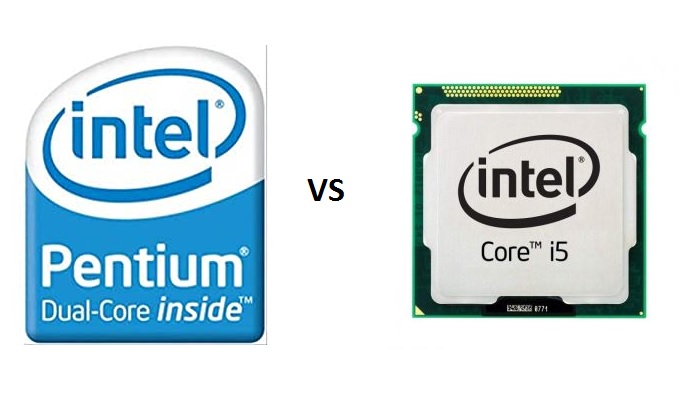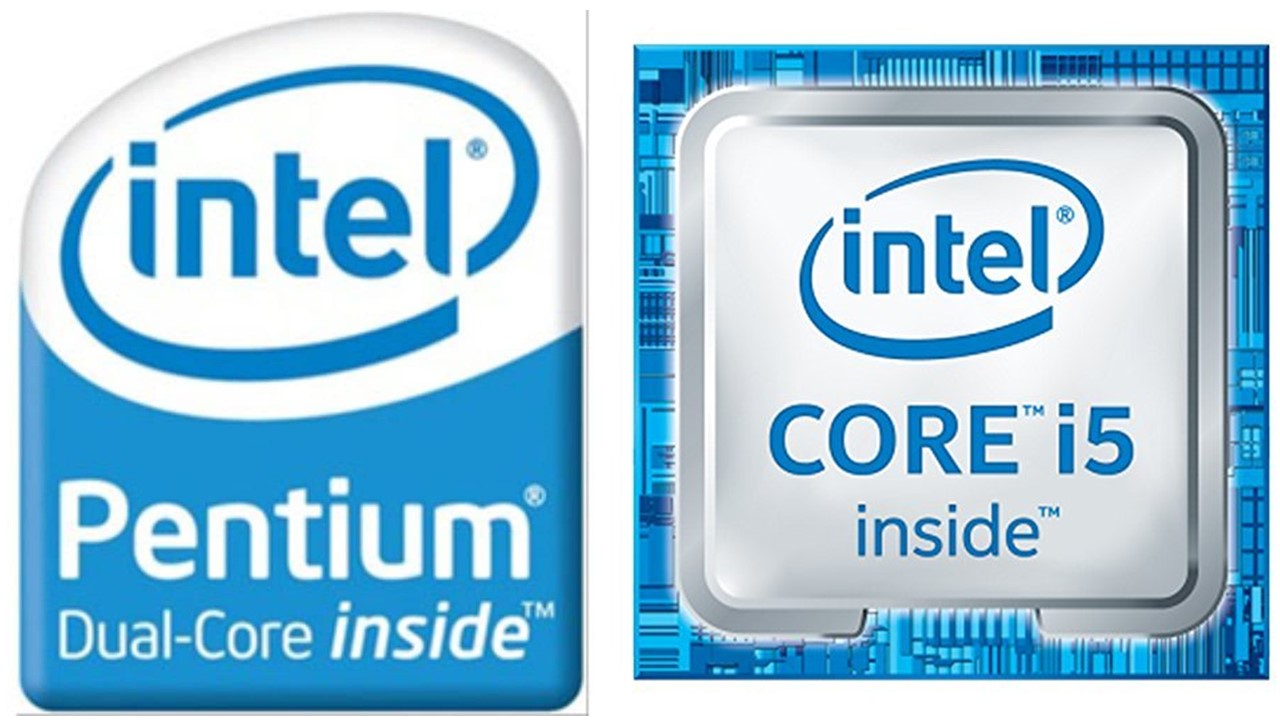There are several differences that you need to know about i5 and dual core processors.
This article will be of significant help in knowing those differences and also to make the right choice among the two by gaining some further knowledge about these two types of processors.
In This Article
KEY TAKEAWAYS
- The dual core processors are good entry level processors for the beginners engaged mainly with basic computing tasks.
- The i5 CPUs are mainstream where the ones with higher number of cores offer exceptionally high levels of performance making them good to use by professionals and gamers.
- The Thermal Design Power of the Intel i5 processors is much higher than the dual core processors.
- In terms of cost, the dual core processors are cheaper than the Intel i5 processors.
The 5 Differences Between Dual Core and i5 Processor

1. Type
The dual core processors are considered to be good entry level CPUs but, in comparison, the Intel Core i5 processors are considered to be mainstream processors.
2. Performance
The dual core processors lag far behind the Intel Core i5 processors in terms of performance. This is because the latter comes with a higher number of cores.
Some of the latest versions of the Intel Core i5 processors may even come with as many as 6 to 10 cores! These processors offer a much higher performance/dollar value in comparison to the dual core processors.
3. Usage
The dual core processors will prove to be good enough for the beginners or those average users who restrict their computing tasks to the basics and average.
On the other hand, the Intel Core i5 processors are good enough for those professionals, enthusiasts, and gamers who use their computer for more-than-average computing tasks.
4. Cost
The dual core processors are relatively cheaper than the Intel Core i5 processors.
5. Thermal Design Power
The Thermal Design Power or TDP of even the best desktop dual core processors are far lower as compared to the TDP of the Intel core i5 processors.
Which is Better – Dual Core or i5 Processor?

This is quite a difficult question to answer because the ultimate choice will depend on the preference and convenience of the user.
As it is always, the choice of processors will also be influenced by the type of computing tasks to be done on the computer and the variety of needs by the user.
Still, you can compare the two processors, dual core and i5, together based on the differentiating factors mentioned above and find out the one that suits you and your computing needs the best.
However, you will also need to know a few other important facts about the dual core and i5 processors so that you can determine the pros and cons of each and then make your choice being more confident.
To keep things short and simple, the dual core processors are usually a part of the Intel I-core family.
The Intel i5 processors are more commonly a quad core processor that does not support hyper threading.
The i5 processors are good CPUs to use in desktop computers for most routine tasks and a few higher performance computing needs and in a laptop for heavier usage requirements and higher performance.
The battery usage of the i5 processors is quite conservative.
It can last up to 5 hours on a single charge depending on usage but at higher speeds it may be reduced to about 3 hours on a single charge, depending on the usage.
The implanted Turbo Boost technology allows the Intel Core i5 processors to offer quite a good performance while handling demanding computing tasks such as rich audio-visual data, games, and other intensive applications with the four different threads working simultaneously.
A few latest versions of the Intel Core i5 processors also support ECC or Error Correction Code memory and Intel OS Guards and Intel Platform Protection Security features.
These features add to its security abilities and protect the BIOS. It also guarantees deterrence against attacks and secure boot.
The Intel i5 processors are computer processors and can be used in desktop computers, laptop computers, and even in mobile and embedded devices.
These i5 processors, like most of the processors belonging to the I-core family, are built on a multiprocessor architecture framework and come with four cores.
Few select models may also have 2 or 6 cores. Some of the common micro architectures used in this particular type of quad-core processors are Clark Dale, Lynnfield, Ivy Bridge, Sandy Bridge, and Haswell.
You will get an Intel i5 processor in multiple speeds ranging anywhere between 1.90 GHz and up to 3.80 GHz.
It comes with variable cache sizes of 3 MB, 4 MB or 6 MB and uses an LGA 1150 or LGA 1155 socket on the motherboard.
The common type of RAM or memory used in an i5 processor is either a DDR3 1333 MHz or a DDR3 1600 MHz but higher frequency memory can also be used with it provided the motherboard supports such expansions.
The power consumption of the i5 processors varies according to the speed.
If it runs at a lower speed ranging between 1.90 GHz and up to 2.30 GHz, it will consume about 11.5 watts of power.
On the other hand, the power consumption can be anywhere from 15 watts to 37 watts when it operates at a medium speed ranging between 2.60 GHz and 3.10 GHz.
And, at higher speeds ranging between 3.20 GHz and 3.80 GHz, the power consumption of an i5 processor may be anywhere from 35 watts to 84 watts.
That is not all. There are also a few other notable advantages of the Intel core i5 processors. These are:
- It is the mainstream processor that is built to offer an all-around performance. It can meet almost all of your computing needs including your daily computing tasks such as web browsing, office productivity and content consumption along with average level gaming and video editing.
- You can expect continuous improvements, upgrades and iterations, as it has undergone since 2009, in the future. The recent versions of Intel Core i5 processors can be easily compared with the previous versions of the Intel Core i7 processor.
- In most cases, the Intel Core i5 processors are more accessible and cheaper than other I-core CPUs and fall under the mid-range to high-range of processors.
However, the Intel Core i5 processors are not designed to handle intensive gaming at high frame rates, editing longer videos, graphics rendering and doing animation tasks.
On the other hand, you should not choose a dual core processor if you intend to play some games on your computer, especially if you want to play those newer titles that typically use more threads while operating.
These games will either not run at all or run very poorly on a dual core processor.
Yes, the hyper threading ability of the dual core processor will solve the problem a bit but up to a certain point.
Beyond that a HT dual core processor will not prove to be as good as a quad core processor like the Intel Core i5.
Though to some users the dual core processors may not be anywhere close to the i5 processors this however does not mean that the dual core processors do not offer any advantage to the users and should be shunned at the first instance.
It is much better to invest in a dual core processor than a single core processor. The most common advantages of a dual core processor over a single core processor are:
- It allows multitasking with reasonably good performance due to its hyper threading ability
- It can divide information and data for processing by using multiple units and
- It does not have to switch between different threads frequently.
One of the most significant advantages of a dual core processor over a single core processor is in the processing speed.
The processing speed of data of the dual core processors is about twice as fast as compared to a single core processor because these are linked together.
This is much different from the traditional dual processor configuration where the two CPUs are separated physically but perform together.
However, at this point it is also good to know that though most programs will have some benefit of the multiple processors, all programs may not work efficiently and quickly in a dual core processor.
The main reason behind it is that some programs or software may not be able to utilize the two processors fully if these are not optimized for multiprocessing.
And, as for the disadvantages of a dual core processor over a single core processor, the latter can outdo the former in terms of clock speeds.
This has a significant effect on its performance of the dual core processor because it may not be able to run all those programs on it if these are not optimized for running in multi core processors.
Also, at times, it may consume more energy as compared to a single core processor.
And, if you thought the dual core processors are better than only the single core processors, you should think again and be surprised when you know about the advantages of these processors over a multi core processor. Some of the advantages are:
- It can offer better battery life on laptops and mobile devices and
- It can attain higher clock speeds while running a few specific tasks.
However, the dual core processors will not be able to handle as many tasks as the multi core processors at the same time.
And, in multi core processors, the presence of higher threads requires less switching of threads as compared to a dual core processor.
So, considering the above facts, it may rightfully seem that the Intel i5 processors are a far better option to invest in provided the cost is not a crucial deciding factor.
Still, as said earlier, you and your computing needs are the best judge.
Conclusion
You should not consider buying an Intel i5 processor rather than a dual core processor without knowing the actual differences between the two.
Thanks to this article, now you are knowledgeable enough and can make your choice confidently.